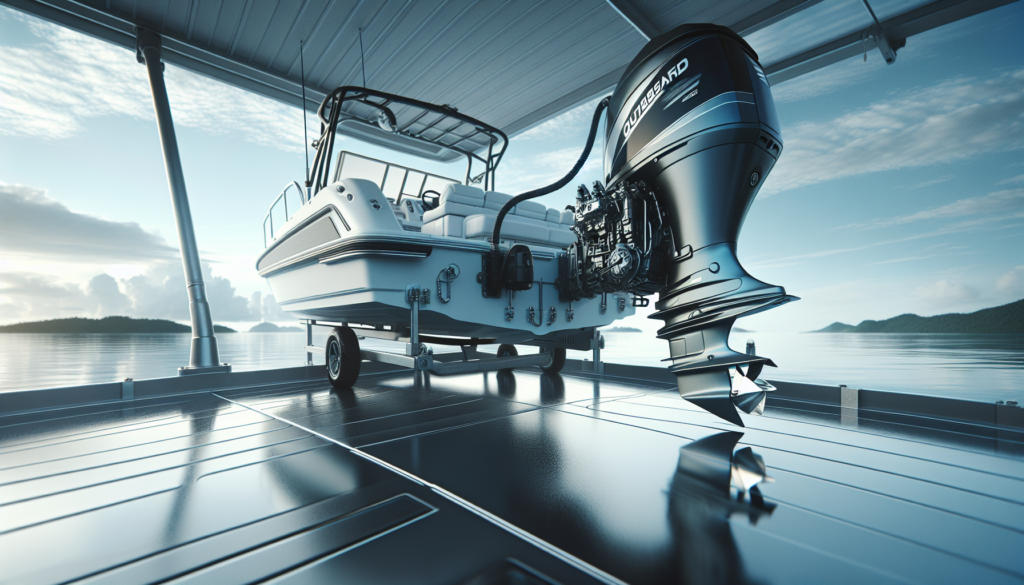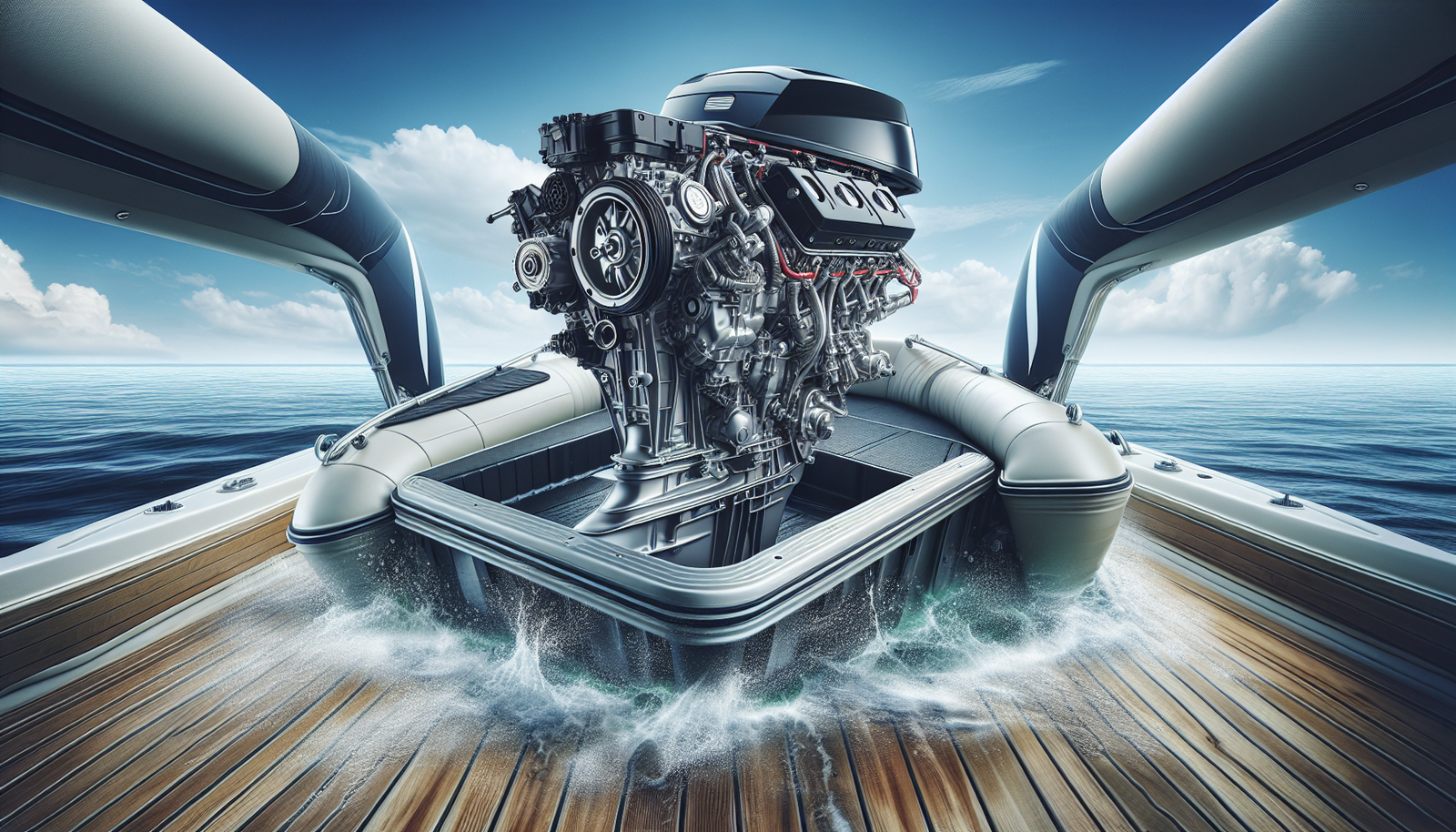Embarking on fantastic boating adventures can become a recurring reality if you know the secret to properly maintaining your boat engine. This article describes in very lucid detail, the nitty-gritty of keeping your engine in tip-top shape to ensure your recreational boating explorations are never interrupted by unexpected engine failures. Removing rust, changing oil, maintaining propellers and many other essential practices are covered, offering you a comprehensive guide to extending the life of your boat engine and enhancing the excitement of your boating outings.

Understanding the Basics of Boat Engine Maintenance
Understanding the basics of boat engine maintenance is critical for any boat owner. Your boat’s engine is its heart and soul – its lifeline. As such, it’s essential you familiarize yourself with the engine’s different components, their function, and learn the common signs of problems.
Familiarize Yourself with the Components of a Boat Engine
Boat engines can be complex, and the first step towards maintenance is familiarizing yourself with the components. Break down the engine unit into manageable pieces and learn about each part – from the carburetor, valves, pistons, cylinders to the spark plugs. Each of these components plays a vital role in the successful operation of the boat engine.
Understand the Role of Each Component in the Engine’s Operation
Once you are familiar with the parts of the engine, the next step is to understand how they work together. Each component has a specific function. The valves allow fuel and air into the cylinders and let out exhaust gases. The pistons move up and down inside the cylinders to create the engine power, and the spark plugs ignite the fuel-air mixture. By understanding the role of each component, you’ll be better equipped to diagnose and fix any issues that may arise.
Learn the Signs of Common Engine Problems
Recognizing the signs of common engine problems early on can save you a lot of time, money, and hassle. Issues such as difficulty starting the engine, excessive smoke, overheating, and unusual noises can all be indicators of underlying engine problems. Familiarizing yourself with these signs can help you intervene and fix the issue before it worsens.
Preventing Boat Engine Problems
Preventive measures can save you from many boat engine problems. Implement a regular maintenance schedule and understand the common causes of issues to avoid unexpected breakdowns. Also, consider proper fuel storage techniques to prevent contamination.
Implement a Regular Maintenance Schedule
Routine maintenance can prevent degradation and wear and tear of the engine components. Create and follow a maintenance schedule that involves regular inspection, cleaning, and replacement of parts where necessary. Regular oil changes, for instance, keep the engine components well lubricated and functioning smoothly.
Know the Common Causes of Boat Engine Issues and How to Avoid Them
Understanding the most frequent causes of boat engine issues is crucial in preventing them. Common culprits can include contaminated fuel, lack of lubrication, and corrosion. Regularly clean and inspect your engine, use fresh fuel, and avoid storing your boat in salty or humid environments.
Prevent Dirty and Contaminated Fuel with Proper Storage Techniques
Dirty or contaminated fuel can cause severe engine problems. Ensure that your fuel is always clean and fresh, store it in a cool, dry place, and use it within its expiry date. Implementing proper fuel storage techniques can maintain your fuel quality and prevent engine issues.
Properly Cleaning Boat Engine
Properly cleaning your boat engine can prevent corrosion, extend the life of the components, and keep your engine in peak condition.
Practice Regular Engine Flushing
After each use, especially after navigating salt water, flush your engine. Salt crystals can corrode metals, so flushing the engine with fresh water will help to avoid any potential harm.
Understand the Importance of Engine Cleaning in Prevention of Corrosion
Regular engine cleaning helps keep corrosion at bay. It also allows you to spot any potential issues early on. Use an engine cleaner or degreaser to safely remove grime and grease.
Know the Right Cleaning Products to Use
Not all cleaning products are safe for your boat’s engine. Choose products specifically designed for marine engines, as they are gentle on the components and effectively remove grime and residue.
Conducting Regular Inspections
Regular inspections are key for boat engine maintenance. They allow you to spot and fix issues before they escalate.
Regularly Check the Fuel System
Check the fuel system for leaks, damage, and contamination. Ensure the fuel lines are intact and the tank is clean. This will ensure your engine receives clean, quality fuel for optimal performance.
Inspect the Outdrive
The outdrive, or the lower unit of the engine, is constantly exposed to water and can be prone to corrosion. Regularly inspect the outdrive for any signs of damage.
Monitor the Propellers for Dents, Cracks, and Damage
Propellers, being directly in contact with water, are susceptible to damage from debris and corrosion. Regular monitoring can help you spot any dents, cracks or damage that could hamper your boat’s performance.

Optimizing Fuel and Engine Performance
Fuel and engine performance go hand in hand. Proper care can prolong the life of both.
Use Stabilizers to Enhance Fuel Lifespan
Adding stabilizers to the fuel can help prolong its lifespan, especially during long periods of inactivity. Stabilizers prevent fuel degradation and help your boat to start easily after storage.
Know the Importance of Fresh Fuel in Maximizing Engine Efficiency
Fresh fuel ensures optimal engine efficiency. Stale or contaminated fuel can lead to poor engine performance and various other issues. So, always use fresh fuel for your boat engine.
Learn to Tune the Engine for Better Fuel Economy
A well-tuned engine delivers the best fuel economy. Learning the basics of tuning, like adjusting the carburetor and replacing spark plugs, can go a long way in improving your boat’s fuel economy.
Maintaining Spark Plugs and Ignition Systems
The spark plugs and ignition system play a vital role in starting the engine. Their maintenance is key to the smooth operation of your boat.
Regularly Check Spark Plugs for Wear and Damage
Inspect the spark plugs regularly for wear and tear or damage. Worn out or damaged spark plugs can cause the engine to misfire, reducing engine performance and fuel economy.
Understand the Crucial Role of Ignition Systems
The ignition system is essential for starting your boat’s engine. It generates a high voltage current that the spark plugs use to ignite the fuel-air mixture in the cylinders. Having a functional ignition system is vital for smooth engine operation.
Know How to Replace Worn Out Ignition Parts
Knowing how to replace worn out ignition parts is an essential skill. Regularly check the distributor cap, the rotor, and the ignition wires for damage and replace them when necessary.
Proper Engine Storage and Winterization
Proper storage of your boat’s engine is essential, especially during the cold, winter months.
Understand the Importance of Proper Engine Storage
Poor engine storage can lead to corrosion, component degradation, and other issues. Proper storage involves cleaning the engine, draining any fluids, applying a corrosion inhibitor, and storing the boat in a dry, ventilated area.
Learn How to Winterize Your Boat’s Engine for Long-Term Storage
Winterizing your boat’s engine involves draining the coolant, replacing it with anti-freeze, and lubricating the engine components. Doing this before long-term storage can protect your engine from freezing temperatures and prevent any potential damage.
Know the Techniques for Protecting the Engine Against Corrosion and Freezing Temperatures
Proper engine storage techniques can protect your engine from corrosion and freezing temperatures. These include applying a fogging oil to protect the internal components from corrosion and using an anti-freeze to prevent the engine from freezing.
Maintaining Cooling Systems
Cooling systems keep your engine from overheating, therefore, their maintenance is critical.
Monitor the Water Pump for Proper Functioning
The water pump is a crucial element of the cooling system. It circulates the coolant throughout the engine. Regular checks to ensure it’s functioning properly can prevent overheating.
Understand the Importance of Proper Coolant Levels
Maintaining the proper coolant levels is vital for the healthy operation of your boat engine. Too little coolant can result in overheating, while too much can cause pressure build-up and potential leaks.
Know How to Replace Worn Out Water Pumps and Coolant
Replacing worn out water pumps and coolant can help maintain your engine’s cooling system. This involves draining the old coolant, replacing the water pump if it’s faulty, and refilling the system with fresh coolant.
Dealing with Boat Engine Problems
Even with good maintenance habits, engine problems can still occur. Knowing how to address these can be incredibly helpful and save costly trips to the mechanic.
Know the Common Signs of Engine Problems
Behaviors like hard starts, reduced power, excessive smoke, or strange noises can be signs of engine problems. Recognizing these early can help prevent more serious issues later on.
Understand the Steps to Troubleshoot Possible Issues
Being able to troubleshoot common issues is a useful skill for boat owners. This could include tasks such as checking the spark plugs, testing the ignition system, or inspecting the fuel quality.
Learn When to Seek Professional Help from a Mechanic
There comes a point when an engine problem may be beyond your skill set, and seeking help from a professional mechanic becomes necessary. Recognizing when you need a professional’s expertise can save you from further complicated and costly damage.
Maintaining the Engine’s Electrical System
Your boat’s electrical system is an integral part of its engine. Maintaining this ensures the well-being of your boat’s operation.
Check Battery Life and Charging System Regularly
The battery life and charging system are an important part of your boat’s electrical system. Regular checks can ensure these are in optimal working condition, preventing unexpected failures when you’re out on the water.
Understand the Importance of Corrosion Prevention on Electrical Elements
Corrosion is a major enemy to any electrical system. It decreases conductivity and can lead to complete failure. Understanding this importance can motivate you to take proper preventive measures, such as regularly cleaning and inspecting your electrical components.
Learn How to Inspect and Replace the Alternator and Starter Motor
Knowing how to check and replace your alternator and starter motor can save you a lot of trouble. These components are vital in starting your engine and keeping your electrical system powered while you’re out on the water. Regular inspections can help you spot any issues and address them before they become a major problem.
So there you have it, a comprehensive guide on how to maintain your boat engine. Remember, the longevity and performance of your engine depend on regular maintenance checks, proper storage, and most importantly, your knowledge of the different components and their function. Happy boating!


[…] longevity of your boat’s lifespan significantly depends on how well it’s taken care of. Regular maintenance keeps your boat’s engine running smoothly and efficiently for a longer period, preventing wear and tear. Without routine maintenance, small […]
[…] While there are varieties of boat engines, most have some key components in common. These include the engine block, pistons, cylinders, and the crankshaft. Other important parts include the intake and exhaust valves, spark plugs, and the timing belt. Understanding these components and their role in the overall functioning of the engine is crucial to operating and maintaining your boat engine. […]